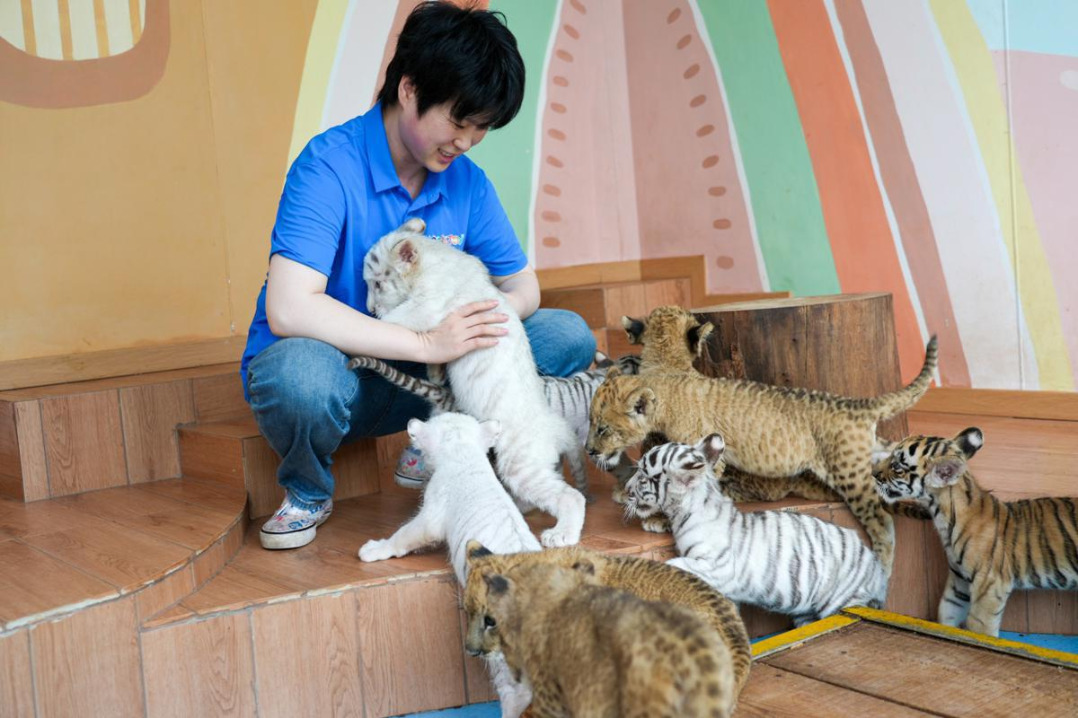Experts defend safety of GMO products


A host of experts and officials have recently defended the safety of genetically modified food, as China seeks to bolster public acceptance of GMO products and invest more in technology-driven crop breeding.
An article published by the Ministry of Agricultural and Rural Affairs in April said that food and animal feed produced with genetically modified raw materials are as safe as ordinary products and do not cause infertility in humans or animals.
The article, released by the ministry's science education department, said before being made commercially available in China the products undergo lengthy safety vetting in accordance with internationally recognized standards.
Safety tests and assessments by respected scientific research institutions in recent years have shown that GMO products approved for market have no food safety issues. However, some opponents of such products have cited research papers questioning their safety, which the ministry said has "serious flaws".
A study by a professor at the University of Lyon in France, claimed that GMO feed caused tumors in mice. Another research paper produced at Italy's University of Naples concluded that farm animals had been harmed after feeding on GMO crops.
The ministry said these studies have been questioned by the scientific community for having flawed experiment designs or manipulated data. "These papers have been retracted, and the researchers involved have even faced investigations," it said.
A 2015 research paper by a Ukrainian agricultural research institution published in the scientific journal Reports of Morphology recently gained traction on Chinese social media. It said that feeding pigs genetically modified soybeans was found to lead to decreased fertility.
However, the ministry's article said that evaluation by China's National Agricultural GMO Safety Commission showed that the Ukrainian research paper's experiment design was flawed.
"Genetically modified feed has been used worldwide for over 20 years, and its safety has been extensively verified through practical applications. Claims that genetically modified products affect human or animal fertility have no scientific basis or medical evidence from authoritative sources and are purely falsehoods and misguidance," it said.
Farmer's Daily on Tuesday published a front-page commentary stressing that GMO products approved for market are all safe.
It said mandatory labeling of commercial genetically modified products helps consumers make informed choices and does not mean food safety is compromised.
"In the past, there were often 'non-GMO' labels for products such as sunflower seed oil and peanut oil, which misled the public and made consumers mistakenly believe that there were many genetically modified products in the market," it said.
It is ironic that there are no GMO sunflower seeds or peanuts in China or elsewhere, it added.
In an interview with People.cn, the website of People's Daily newspaper, Zhuo Qin, a nutritionist at the Chinese Center for Disease Control and Prevention, said genetically modified crops have been planted across the world on commercial scales since 1996. Growing areas cover 2.66 billion hectares, and genetically modified food is being consumed by billions of people in over 70 countries and regions.
"There has not been a single scientifically confirmed safety incident," Zhuo said.
The efforts to repair the reputation of GMO products come as the Russia-Ukraine conflict and extreme weather conditions threaten global food production and supplies.
Huang Yubi, a professor at the Sichuan Agricultural University in Chengdu, Sichuan province, and a crop breeding expert, said genetic modification technology is a viable solution to ensuring food security and stability.
He told financial news outlet cls.cn that genetic modification can give food products traits such as resistance to insects and diseases, and eradicate the need for herbicides. This reduces costs and ensures yields, but does not technically bolster yields.
Future research efforts could focus on genes that provide drought resistance and heat tolerance. "In the context of global warming, genetic modification is one of the effective approaches," he said.
China has one of the world's strictest approval processes for genetically modified food production.
As of now, only four crops — cotton, rice, corn and papaya — have acquired safety clearance from the National Agricultural GMO Safety Commission.
Among the crops, only cotton and papaya have obtained further approval to be planted for commercial purposes.
- Easier tax refunds for intl tourists in Shanghai
- Jianjiangyan irrigation system added to world heritage list
- World Laureates Association announces 2025 prize winners
- China Eastern Airlines launches regular flight between Nanchang and Macao
- Menagerie of floats to converge on Shanghai for tourism festival
- New aquatic product center opens for business in Guangzhou





































